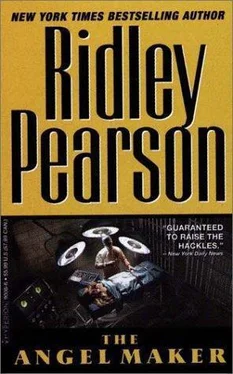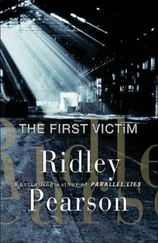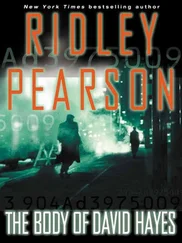Ridley Pearson - The Angel Maker
Здесь есть возможность читать онлайн «Ridley Pearson - The Angel Maker» весь текст электронной книги совершенно бесплатно (целиком полную версию без сокращений). В некоторых случаях можно слушать аудио, скачать через торрент в формате fb2 и присутствует краткое содержание. Жанр: Триллер, на английском языке. Описание произведения, (предисловие) а так же отзывы посетителей доступны на портале библиотеки ЛибКат.
- Название:The Angel Maker
- Автор:
- Жанр:
- Год:неизвестен
- ISBN:нет данных
- Рейтинг книги:3 / 5. Голосов: 1
-
Избранное:Добавить в избранное
- Отзывы:
-
Ваша оценка:
- 60
- 1
- 2
- 3
- 4
- 5
The Angel Maker: краткое содержание, описание и аннотация
Предлагаем к чтению аннотацию, описание, краткое содержание или предисловие (зависит от того, что написал сам автор книги «The Angel Maker»). Если вы не нашли необходимую информацию о книге — напишите в комментариях, мы постараемся отыскать её.
The Angel Maker — читать онлайн бесплатно полную книгу (весь текст) целиком
Ниже представлен текст книги, разбитый по страницам. Система сохранения места последней прочитанной страницы, позволяет с удобством читать онлайн бесплатно книгу «The Angel Maker», без необходимости каждый раз заново искать на чём Вы остановились. Поставьте закладку, и сможете в любой момент перейти на страницу, на которой закончили чтение.
Интервал:
Закладка:
The examination room had a chart on the wall that diagramed the nerves, lenses, and muscles in a cat's eye. There was a large, framed color photograph of Puget Sound at dawn, a nuclear submarine just barely visible alongside a pod of surfacing Orca whales. The room had no window but did possess a large air grate in the ceiling. It smelled of rubbing alcohol and disinfectant.
Camile wrestled to be free but lacked the energy for a prolonged struggle. She resigned herself to Pamela's hold.
A moment later the door swung open and the veterinarian stepped inside. Dr. Elden Tegg, D.V.M., as his name plaque introduced him, stood close to six feet tall, in a wiry frame, with a dark complexion, brown eyes, and a black beard carefully trimmed. He wore a white lab coat, khaki pants, and brown leather walking shoes with rawhide trim. He had a protruding Adam's apple that bobbed as he spoke in a grating voice. His attention fixed immediately upon his patient.
Pamela Chase passed him the cat as he nodded. He had exceptionally long fingers, immaculately clean hands, perfectly manicured nails, and he wore a gold wedding ring.
He studied the cat thoughtfully, squeezing, probing. He looked into her eyes and glanced quickly into her ears. "Loss of appetite and vomiting," Pamela Chase informed him. He grunted an acknowledgment. "They sent pictures along." Tegg returned the cat to his assistant and approached the light board, turning it on and studying the X-rays. "Well," he asked in a professorial tone, "did you have a look at these?"
She answered, "I was thinking we should try a milk shake," referring to a barium upper G.I. "Have I told you how fortunate I am to have you?" he asked She glowed with the compliment.
"Let's sedate her," he said, "shall we?"
Fifteen minutes later, she reentered carrying both the cat and the new X-rays. Tegg slapped the large negatives into the clamps on the light box, studied them carefully, and signaled Pamela over to him. She responded without thought. "Here's what the others missed," he said confidently, running one of his clean fingernails over a section of the X-ray. "See here, and here?" he asked. "It's not what you see," he advised, "it's what you don't see, which might explain how it was missed so easily. just a ghost, see?"
"Yes, now I do."
"There's some kind of obstruction in the stomach. Maybe a fur-ball, but I doubt it. Let's try an endoscopy and have a look." Pamela Chase prepared all the necessary equipment for the procedure and stood alongside him like a corporal at the side of a general. He inserted the black eel of plastic tubing down the cat's throat. The tiny fiber optic camera inside the animal's stomach sent back black-and-white pictures to the small SONY television that Tegg studied. "The problem with something plastic like this is that the veterinarian cannot feel it in the exam, cannot see it clearly in an X-ray, and yet to this poor creature it feels like her tummy is full all the time. She tries to crap, but the stomach rejects it. Probably picked it up off the floor," On the screen, under his direction, a small set of pinchers moved like jaws. Tegg deftly maneuvered them to apprehend the foreign object. A moment later he extruded the endoscopy tube from the cat.
A small piece of soft plastic-a swimmer's ear plug-fell into the stainless steel dish that Pamela held.
Tegg stated clinically, "That should do it. Send along the usual instructions regarding the anesthesia. Also some buffers to help out with the abrasion to the stomach lining. If the vomiting continues, they should reschedule immediately."
He moved toward the door. "What's next?" he asked her. "You haven't taken a break all day," she said. "What's next?" he repeated. "A toy poodle," she advised, checking a list. "Blood in the urine."
"Are we set up for surgery?" he asked. "All set," she replied. "Give me five minutes," he told her. Then he added sincerely, "I hate toy poodles."
The downtown branch of Seattle's public library is two blocks from the Public Safety building, the police department's central offices. it is overshadowed by an intriguing skyline sprouting new glass and steel in amounts that ten years earlier would have seemed inconceivable. The Big Money had hit Seattle in the mid-80's, bringing with it a renewed downtown, renovations, public transit, and the ubiquitous shopping centers. The thirty- and forty-story towers competed for the best view of breathtaking Elliott Bay and Puget Sound to the west and the majesty of glacier-capped Mount Rainier to the southeast. By city standards, Seattle's downtown is remarkably small, contained to the south by the Kingdome and to the north by the Seattle Center, a holdover from the 1962 World's Fair. To the west is the green-marble estuary with its gray ferries and black freighters; to the east, downtown is stopped by Interstate 5, Pill Hill and Seattle College. Downtown is surrounded for miles by rolling hills blanketed in two-story clapboard homes and communities like Ballard, Ravenna, Northgate and Richmond Highlands. It is a city of water: the Sound, lakes, canals and rivers. For Boldt's taste, the city's growth and expansion was happening too quickly, seemed too uncontrolled. Seattle was learning life the hard way: theft, drugs, organized crime and shrinking budgets. Its art, culture and traditions kept it vital and unique: its music, dance, fine arts; its fishing, sailing, and Native American history; its festivals and celebrations; its libraries, museums, theaters and public market.
The library is a mixture of formed concrete and garden. Plate glass windows and deciduous trees. As with any such library, entering it is like stepping into a silent movie. On the Thursday afternoon of their meeting, it was a little busier than usual, probably because of the drizzle, Boldt thought. In a city with a winter climate like Seattle's, the library took on a position of great importance, a kind of Mecca for the mind. The faces in these rooms were not pale, nor were they dispirited. The people of Seattle were a vibrant, red-cheeked, resilient bunch, whom Boldt counted as his own. The wet winter weather, extremely temperate considering the latitude, was essential-a few years of drought had taught the locals that much. This weather-or its reputation was what kept the masses away. It was the city's best defense in its increasing battle against Californication.
Boldt entered wearing a baby carrier that supported his son Miles. He joined Daphne at one of the large reading tables on the second floor, as far away from others as possible. She steeled herself for what lay ahead. This was her chance to convince him they had a case-to win him over. That child hanging around his neck represented his other life. She couldn't allow herself to think of it in those terms. Boldt was a friend, certainly. But more importantly, he was a cop with the connections and talent to make this case happen. This was her focus. The image of Cindy Chapman's bleeding incision was lodged in her mind.
On the table in front of her lay three Pendaflex folders and a pile of photocopies from her research at the library. She felt both exhausted and afraid, and the two sensations fed on each other, injecting her with an anxiety she found difficult to overcome. Without him, without some male to support her god, how she resented it-she had little or no chance of convincing Lieutenant Phil Shoswitz to open this investigation.
She wore gray stirrup pants, a white blouse buttoned high, and a crimson scarf to hide her scar. She had her brown-red hair pulled back off her face, a pair of simple silver studs in her ears. Boldt was, as always, disheveled, wrinkled, worn. Khakis, a Tattersall shirt, brown walking shoes with thick rubber hiking tread. He looked tired-probably was-and older than he had last night at The Big Joke. "Meet my son, Miles," Boldt said proudly, speaking in a hushed voice, dropping into a chair and putting down the baby bag he carried with him.
Читать дальшеИнтервал:
Закладка:
Похожие книги на «The Angel Maker»
Представляем Вашему вниманию похожие книги на «The Angel Maker» списком для выбора. Мы отобрали схожую по названию и смыслу литературу в надежде предоставить читателям больше вариантов отыскать новые, интересные, ещё непрочитанные произведения.
Обсуждение, отзывы о книге «The Angel Maker» и просто собственные мнения читателей. Оставьте ваши комментарии, напишите, что Вы думаете о произведении, его смысле или главных героях. Укажите что конкретно понравилось, а что нет, и почему Вы так считаете.












